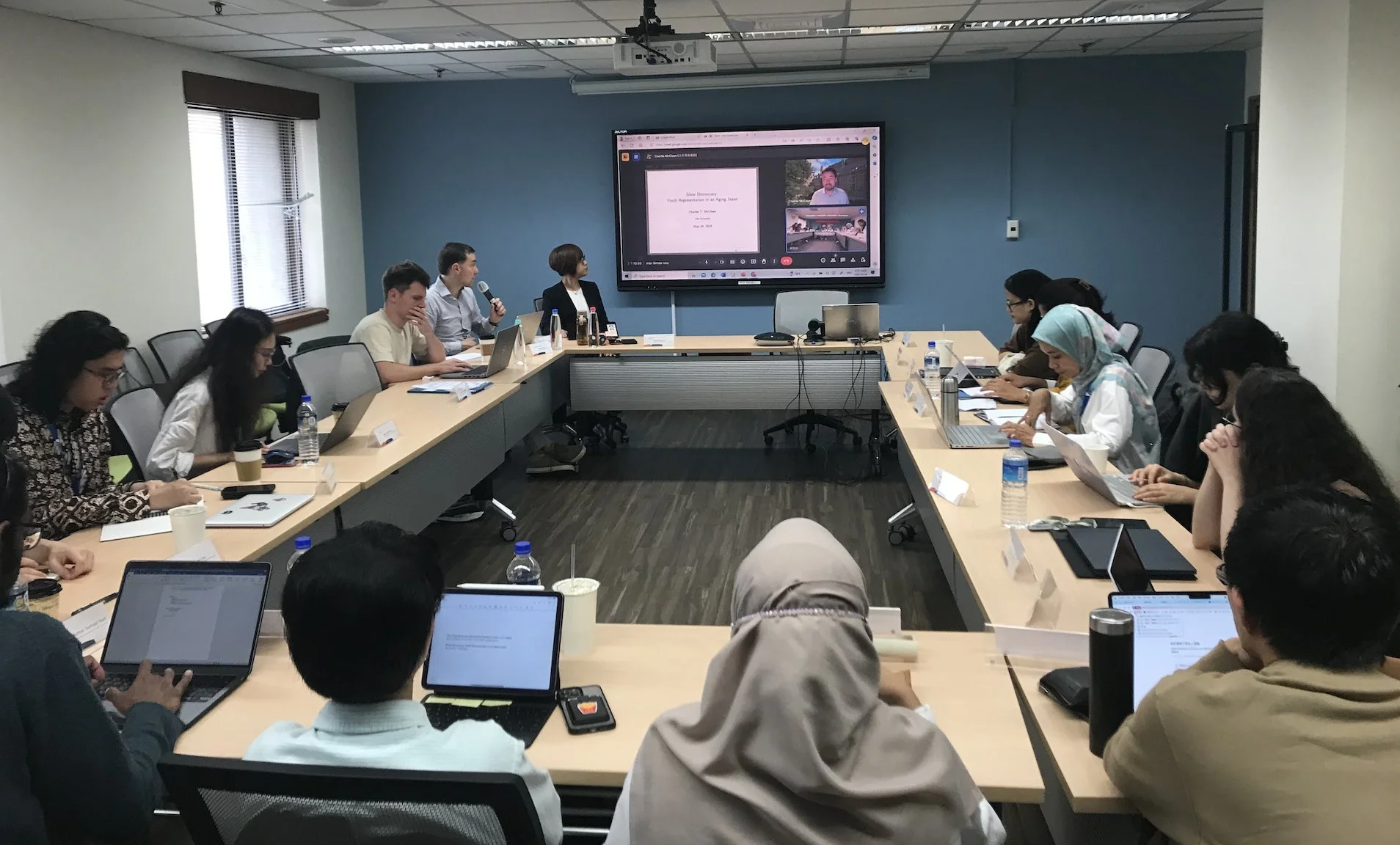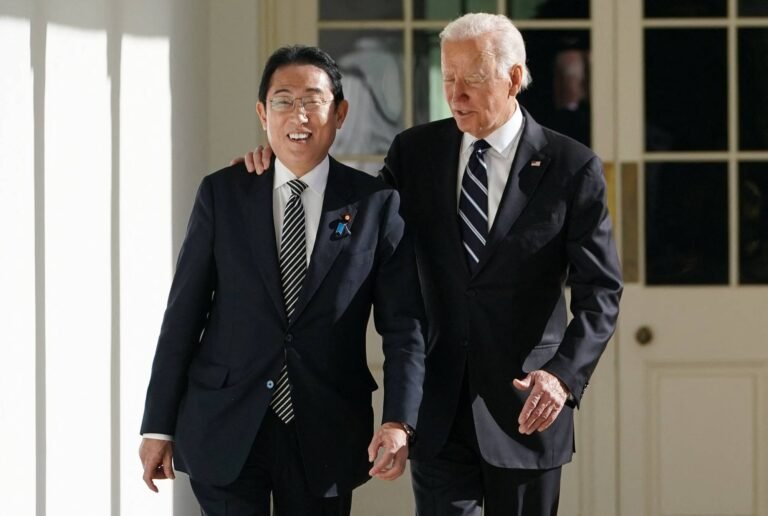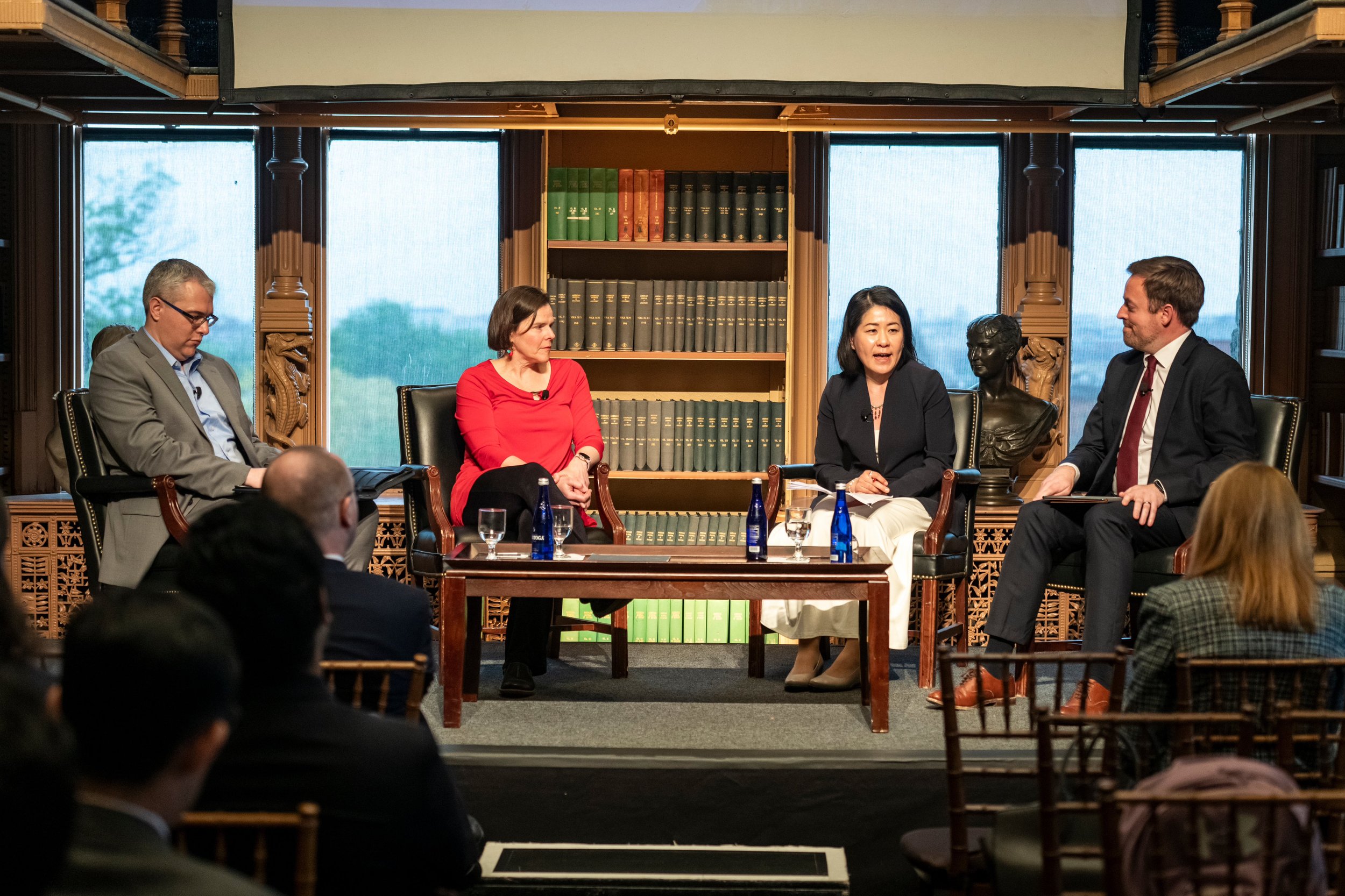I spoke with Ashli Varghese at Business Standard about why incumbency rates tend to be lower in Indian elections compared to other democracies. The article features my 68-country study with Shane Martin and Kaare Strøm.
NCCU: Summer School on Political Parties and Democracy
I discussed my book project with a group of MA/PhD researchers participating in the 4th Asian Summer School on Political Parties and Democracy at National Chengchi University (NCCU) in Taipei.
WSJ: Why the World's Leaders Are Getting Older
For this video for The Wall Street Journal, I joined Jon Emont to discuss why the world's leaders are getting older—and what it means for policies and political engagement.
NYU: Frontiers in Empirical Research on East Asia
At this NYU conference, I presented new work (with Yuki Shiraito) on “Voter Preferences for Young and Female Candidates: Comparing Conjoint Experiments with Real-World Behavior.”
Washington Welcomes Prime Minister Kishida
In our latest article for Comparative Connections, Sheila Smith and I dive into the busy start of 2024 for US-Japan relations—from regional responses to Taiwan's election in January to the US-Japan and US-Japan-Philippines summits in April.
Asahi: Why Are There So Many Older Politicians?
Today’s Asahi Shimbun feature a story about my Political Behavior article with Yoshikuni Ono.
Georgetown: The US-Japan Partnership in the 21st Century
I spoke about challenges for democracy in the US and Japan at this Georgetown conference.
Princeton: Global Japan Lab
I visited Princeton’s Global Japan Lab to give a talk about my research and the job market for social scientists working on Japan.
Yale and the World
In this interview with Yale’s Office of International Affairs, I discuss my research and teaching, as well as resources available to Yale students interested in Japan.
Too Young to Run? Voter Evaluations of the Age of Candidates
Yoshikuni Ono (Waseda University) and I have a new article out in Political Behavior!
Abstract
Why do elected officials tend to be much older than most of their constituents? To understand the mechanisms behind the underrepresentation of young people in public office, we conducted two novel survey experiments in Japan. We asked voters in these experiments to evaluate the photos of hypothetical candidates while altering candidates’ faces using age regression and progression software. Contrary to the observed age demographics of politicians, the voters in our experiments strongly disliked older candidates but viewed younger and middle-aged candidates as equally favorable. Voters saw young candidates as less experienced but also more likely to focus on many policy issues over a longer period, including education, childcare, climate change, anti-corruption measures, and multiculturalism. Young voters especially liked young candidates, suggesting that greater youth turnout could increase youth representation. Conversely, elderly candidates were universally panned, seen as the least competent, least likely to focus on most policy issues, and least electable. Voter biases thus do not seem to be a driving factor behind the shortage of young politicians. To the contrary, voters appear perfectly willing to cast their ballots for young candidates.
WSJ: Old Leaders Run the World—and They’re Not Going Anywhere
Today’s Wall Street Journal features my research on aging leaders.
UCSD: How Japan’s Aging Politicians Affect Policy Choices
I talked about my book project for the UCSD School of Global Policy and Strategy’s Japan Forum for Innovation and Technology.
Daiwa: Youth Political Representation in an Aging Japan
I talked about my book project at the Daiwa Anglo-Japanese Foundation.
Legislative Resources, Corruption, and Incumbency
Shane Martin, Kaare Strøm, and I have a new article out in the British Journal of Political Science!
Abstract
Members of some legislatures enjoy long political careers, whereas elsewhere turnover is rampant. This variation is consequential since high-incumbency assemblies may facilitate legislative expertise at the expense of social representation. We explore cross-national differences in re-election (incumbency) rates by identifying ‘supply’ conditions such as legislative resources that benefit incumbents as well as ‘demand’ conditions such as political corruption that affect voters' willingness to re-elect incumbents. We hypothesize that legislative perquisites help incumbents win re-election, but only if there is relatively high public confidence in politics, as reflected in low corruption levels. We tested our argument using OLS and instrumental variable regression and new global data on sixty-eight democracies (2000–18) covering 288 elections and over 55,000 legislators. We found that legislative resources help incumbents get re-elected only under relatively low levels of political corruption. In contrast, under severe corruption, such resources can depress re-election rates.
NPR: The Growing Concern of Japan's Silver Democracy
I joined Anthony Kuhn to discuss my book project on NPR’s All Things Considered and Morning Edition.











